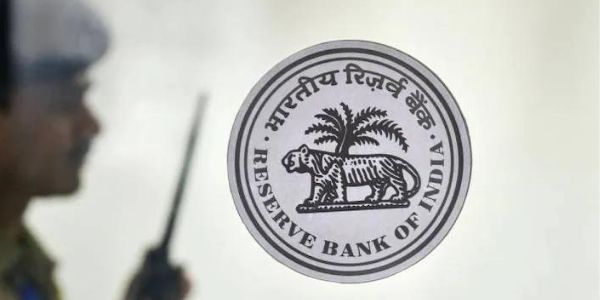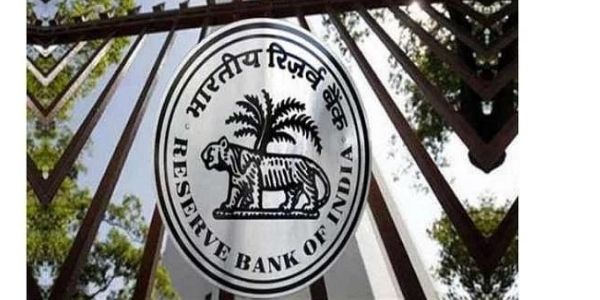In the first place, there are many concepts one must cover for the UPSC exam. As the syllabus of the IAS exam is vast and it is vital for one to cover to get the best results in the exam. It is one of the popular exams present in India, and we also see so many students apply for the exam. Further, this article has covered details like Urban Cooperative Banks in India for the UPSC exam. We have covered vital details essential for one to understand for the UPSC exam. Read the article and learn more about the Urban Cooperative Bank. Let’s Begin.

Introduction
To begin with, the Urban Cooperative Bank is the primary cooperative bank located in urban and semi-urban areas. Further, these banks are present around communities, localities, and workplace groups. Let us learn all the other details like Urban Cooperative Banks in India and for the UPSC exam below. This concept is vital for the IAS exam preparations. So, it becomes essential for one to know and one can refer to the last year’s paper to know about the same.
To know more about the UPSC and the IAS exam. Read More.
Urban Cooperative Bank
As mentioned earlier, this type of bank refers to the primary cooperative banks in urban and semi-urban areas. Further, these banks are finance entrepreneurs, small businesses, industries, and self-employment in urban areas. UCB are registered, and they are governed by the respective states’ cooperative societies acts, as well as the Banking Regulation Act of 1949. Besides, the urban areas must meet specific criteria for applying to the RBI for a banking license.
History
Talking about the history of the Urban Cooperative Banks, these banks are origins in the late nineteenth century. It was the time when such societies were established in India. Further, inspired by the success of experiments related to the cooperative movement in Britain and Germany. Additionally, cooperative societies are founded on the principles of mutual aid, democratic decision-making, and open membership. They also represent new and various approaches to companies compared with commercial organizations. Further, the first known mutual aid society in India was the “Anyonya Sahakari Mandali,” founded in 1889.
In the early stages of the UCB, credit societies used to form on a community basis. To meet the demand for consumption-oriented credit. Further, Cooperative Credit Societies Act in 1904 offered the real impetus to the movement. Later, in 1904 the first urban cooperative bank was established in Canjeevaram (Kanjivaram). In January 1906, the Bombay Urban Co-operative Credit Society, founded by Vithaldas Thackersey and Lallubhai Samaldas. The Cooperative Credit Societies Act of 1904 was amended in 1912, and this was done to allow for the formation of non-credit societies. Further, the Maclagan Committee, formed in 1915, reviewed their performance and recommended ways to improve it.
Importance
Further, the Urban Cooperative Bank plays a vital role in mobilizing deposits and financing the small-borrower sector. Besides, banks are primarily present in the local financial service provider. They focus on the lower middle class and people with limited sources like self-employed and micro-enterprises. Then, these banks have been instrumental in providing financial assistance to the rural sector.
Category of the UCB
It is further based on the cooperativeness’ of the banks, availability of capital, and other factors. The UCB is classified into four tiers.
- Tier 1 – It is the UCBs having deposits up to Rs 100 crore.
- Tier 2 – It is the UCB having deposits between Rs 100 crore and Rs 1,000 crore.
- and Tier 3 – It is the UCB having deposits between Rs 1,000 crore and Rs 10,000 crore.
- Tier 4 – It is the UCB having deposits more than Rs 10,000 crore.

Umbrella Organization
Further, the committee has approved establishing an umbrella organization (UO). To look after the cooperative banks and suggest to open more branches. The UO must be financially strong and well-governed by a professional board.
Challenges Faced by the Urban Cooperative Bank
- Large share of Rural cooperatives
- Challenging Changes
- Recent Failures
- Sinking balance sheet
- Diminished share in agricultural lending
- Dual control
- The Indian cooperative banks are suffering from a few years. Due to the evolving changes in the financial sector. It includes combine and integrate microfinance, FinTech companies, payment gateways, social platforms, etc.
- Further, loans and deposits are both declining at a faster rate.
- Also, frauds, covid-19, and other things made the assest quality, resulting in a decline in profitability for the UCB.
- Then, the reduced agriculture lending. Further, liberalisation of licencing policy in 1993, nearly one-third of newly licenced businesses became financially unsound.
- Lastly, the Lax corporate governance standards, combined with political influence and interference.
Current Status
Concerning the recent developments in January 2020, RBI revised the Supervisory Action Framework (SAF) for UCBs. Further, the central government decided on an Ordinance in June 2020. It will bring all urban and multi-state cooperative banks under the supervision of the RBI. Besides, a committee led by former RBI Deputy Governor NS Vishwanathan.

Why it is essential for the IAS?
As the IAS exam syllabus is vast, it will cover huge topics. Further, one needs to go through the complete syllabus and the pattern of the paper before applying for the exam. It is a natural question why we need to study the UCB? It is vital for the General Studies paper as the IAS exam is one of the toughest and the popular exams present in India. Besides, there are many people and working professionals, and students apply for it. We can also say that it is difficult to clear the exam and one must work hard. However, with the right preparations, one can easily clear the exam.
Further, the IAS exam includes three rounds. The first one is the qualifying round of prelims, and the second round is the main exam. Once you clear the main exam, one can give an interview round. One must clear all three rounds to get selected. In the prelims, you will have two papers objective, and in the main exam, you will find nine papers with descriptive types. Get all information on the IAS exam, and we have covered all the essential details for the UPSC exam preparation. Read More.
Quick Tips and Suggestions
To get the best results in any exam it is important for one to follow up on some tips. Check out the following points for more details.
- Understand the exam syllabus and the pattern of the paper. For this one can give mock tests and can solve old papers.
- Further, refer to the previous year’s question paper to better understand the exam and question pattern.
- Revision is an important factor for any exam. It helps you to remember things well, so before starting the new concepts, try to revise the previous concepts.
- Besides, understand which are the best books for various subjects. Try to study from those books as it will help you to gain knowledge for the IAS exam.
- Be careful while choosing the optional subject. One must know their skills and interests and choose the optional subject.
- Answer writing practice is also essential. You will come to know about answer writing speed and how to cover all essential points with the minimum points.
- It is important for one to check the official website to get the latest information related to the exam.

Conclusion – Urban Cooperative Bank
In summary, the article speaks about Urban Cooperative Banks in India and why it is important for the Urban Cooperative Bank UPSC. It is one of the vital components for one to know as a point of the UPSC exams. Further, we have added information like Urban Cooperative Bank in India, its importance, history, and other information. Besides, while reading the make sure that you have noted down all the essential points. It will help you with the exam preparations. Then, check out the other UPSC study materials and other information. Know More. We understand it is hard to cover all the concepts for the exam. But it is essential to get the best scores in the exam. So, this article will provide you with the complete details. If you want to know about the same one can visit the official site. All the best for your exam.
FAQs – Urban Cooperative Bank
RBI is responsible for handing the UCBs.
Shivalik Mercantile Co-operative Bank
Maharashtra has the highest number of UCBs.
Editor’s Note | Urban Cooperative Bank
The above article will find complete information on the Urban Cooperative Bank for the UPSC exam. We have covered vital things like its history and challenges faced, operations, and other important information. One can read this complete article and get the necessary information for the exam. Know-how with the time UCBs have grown and its importance in India. Try to make a note of essential points while reading the article. One needs to know about the Urban Cooperative Bank. Furthermore, we have added information about the IAS exam and some useful tips for the exam. We hope this article will help you with your exam—Good Luck with your exams.






